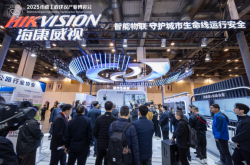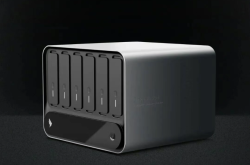Now is the critical moment! A new starting point for China bulls
![]() 11/05 2024
11/05 2024
![]() 576
576
I. Drawing the sword and looking around in confusion
Before the Xiaomi press conference in Beijing, I accompanied some friends on a trip tracing Zeng Guofan's footsteps in Hunan. We visited the burial ground near the former site of Tongxi Temple, the military training ground by the Xiang River in Hengyang, Zeng Guofan's ancestral home Fuhoutang, and the former Zeng residence Baiyutang. Our itinerary was packed, and we didn't have time to visit Jinggang Ancient Town, where Zeng Guofan fought his first battle and first defeat, and where he first attempted suicide by jumping into the river.
My friends are all experienced internet industry professionals who have reached the ceiling of their careers in midlife. We have witnessed or experienced the golden age of the internet, but the past few years have been tough. The trip was just an excuse to drink and drown our sorrows. After a few drinks, we reminisced about the past rather than discussing industry trends or future investments. We miss the old days when we were passionate and full of dreams. Those dreams have now settled into the fat around our waists.
We used to wear nearsighted glasses, but now we need reading glasses. To stop snoring, some choose expensive mouth guards, while others discuss which respirator is better suited to the dry northern climate. A friend described himself with a poem: 'Drawing the sword and looking around in confusion.' This confusion seems related to age but also doesn't. The ancients said that one should be established at 30 and unperplexed at 40, but my friends and I, who have entered our unperplexed years, are still full of doubts about the future. We don't understand, we can't comprehend, and we dare not imagine.
Like other middle-aged dinner gatherings, we often discuss macroeconomic topics: gold prices, the Chinese and American stock markets, the Israeli-Palestinian conflict, the US presidential election, JD.com and Yang Li during Singles' Day... The rise in gold prices closely mirrors Donald Trump's rise to power. When Trump was elected president, gold was priced at 270 yuan per gram; when he ran again, it was 650 yuan per gram. As internet industry professionals, we perceived the hardships of our industry beginning in 2018, marked by Trump's trade war and Xiaomi's Hong Kong IPO. The last big internet story and the rise of the last super platform, Douyin, also occurred in 2018. Short videos powered by information flows have become popular worldwide, but the world seems divided. Besides the Israeli-Palestinian and Russian-Ukrainian conflicts, social media is also filled with in-group bias. People are becoming more extreme, but internet celebrities become more popular the more extreme they are...
After a trip, several meals, and numerous bottles of liquor, we talked a lot and yet felt like we talked about nothing. We couldn't help but lament that the only things in this world that come effortlessly are illness and age.
Our ultimate topic of discussion was what to do next and whether tomorrow would be better.
II. The person in power, the wall-breaker
Emotions are easily contagious, and some friends were inspired by Lei Jun's passionate speech. We didn't complete the entire Zeng Guofan trail in Hunan because one friend had to return to Beijing early for Xiaomi's press conference. He is a senior Xiaomi fan and executive of a company invested by Lei Jun. Almost everything in his home, except for his car, is made by Xiaomi. He said that Lei Jun's annual speech three months ago inspired him. He felt that he couldn't just lie down and do nothing; he needed to keep striving. Earlier this year, he was often depressed, but now he is positive every day.
During the dinner after the press conference, my friend said that many phone companies were launching new products during this period, but few gained much attention. Even the iPhone 16 wasn't particularly popular, and only a handful of products generated as much buzz as Xiaomi's news. Even Xiaomi's press conference mainly relied on the momentum of the Xiaomi SU7 Ultra. Without the Xiaomi car, Xiaomi might have become just another ordinary phone company, even if it is still among the Fortune Global 500.
My friend joked that in 2015, Xiaomi faced its first crisis and was pursued by "internet phone" companies that later imitated it. Now, it has sailed through many difficulties. In 2015, Didi merged with Kuaidi and acquired Uber China, Meituan merged with Dianping, and 58.com merged with Ganji.com. Everyone thought that internet entrepreneurship had reached a turning point. At that time, Huang Zheng had just started Pinduoduo and was relatively unknown. ByteDance's "Neihan Duanzi" and "Toutiao" were slightly larger but still small second-tier companies. Who could have predicted today's internet landscape? Those in power are often blinded, but everyone becomes wise and clever in hindsight. He concluded that we are often unaware of being at a historical turning point.
As a senior "netizen" proficient in both Chinese and Western cultures and skilled in history, especially Ming and Communist Party history, he cited classical allusions to support his view. He said that in 1936, after the Long March, Chairman Mao and his comrades, who had just settled into caves in Yan'an after traversing thousands of mountains and rivers, probably didn't expect the victory of the new democratic revolution 13 years later. In 1999, the Chinese Embassy in Yugoslavia was bombed, causing widespread indignation. In 2000, a Chinese fighter jet collided with a US surveillance plane over the South China Sea, sparking nationwide outrage. Who would have thought that China would join the WTO the following year, that the US would experience the 9/11 terrorist attacks, leading to the rise of Chinese manufacturing and a significant easing of tensions between China and the US? These two events brought China a strategic opportunity period of 20 years.
We still remember popular forums from back then, such as Tianya and Mop, which have mostly disappeared in the wave of the internet. In 2005, a user with the ID "Xueliang Jundao" on Tianya predicted that China's GDP would surpass Japan's by 2030. This comment caused a stir, and many netizens thought he was too optimistic. However, just five years later, China's economic aggregate strongly surpassed Japan's, and 10 years later, China's GDP was twice that of Japan's.
My friend said that looking back, no matter how difficult the current situation seems, it's not that scary. Back then, we drank cheap beer and lived in basements, never imagining we would settle in Beijing, drink craft beer, or afford Wuliangye or Moutai. We should be like Fan Wei in "The Long Season" – look ahead, don't look back, and keep moving forward without stopping.
III. A ray of hope appears in the distance
As people born in the 1980s, we share many collective memories, despite coming from different backgrounds. Our childhood memories include eye exercises, green trains, open-air cinemas, and the World Cup. When we were young, China was known as the "bicycle kingdom," and imported cars were considered luxurious symbols of high status. No one could have imagined that over 20 years later, China would become a "new energy vehicle powerhouse." A friend personally experienced this transformation and now enthusiastically recommends new energy vehicles to everyone after experiencing the joy of intelligent driving in Xinjiang this summer.
Seeing the video of the Xiaomi SU7 Ultra on the Nürburgring racetrack and its pricing comparable to the Tesla Model S Plaid excited my friend, who jumped for joy and immediately decided to place a deposit of 10,000 yuan to order one. After more than half a year of learning about positive energy, my friend is now well-versed in Chinese technology, especially hard tech companies. He said that technology is the key to China's future and that technology companies, especially hard tech companies like Xiaomi, Huawei, BYD, and CATL, are the foundation for China's transformation from an economic powerhouse to a technological powerhouse.
Let them be strong; the breeze will still blow over the mountain. Let them be arrogant; the moon will still shine over the river. My friend said that over the past few years, industries such as new energy vehicles, lithium batteries, and photovoltaics have faced immense pressure, but this pressure hasn't stopped our progress. In the first three quarters of this year, China's GDP grew by 4.8%, and the new energy vehicle and integrated circuit industries grew by 33.8% and 26% year-on-year, respectively. Behind all the pressure, whether it's the trade war, long-arm jurisdiction, or increased tariffs, the most important question is why they are suppressing China's industries.
It might be out of fear:
In 2023, China accounts for over 80% of global photovoltaic production capacity, with Europe being China's primary export market for photovoltaic modules.
BYD started as a mobile phone battery manufacturer and was criticized for lacking technology and only being suitable for low-end ride-hailing services after entering the automotive industry. Now, BYD has launched its high-end brand Yangwang, and its hybrid technology is globally leading, even used by Toyota.
Look at CATL; even the US automaker Ford, a pioneer in the modern automotive industry, is using licensed technology from CATL in its new battery factory in Michigan.
As for the familiar Xiaomi and Lei Jun, three years ago, Lei Jun said he would risk everything to build cars. External doubts poured in, questioning either his late entry or his technological accumulation and product research and development. Few media outlets were optimistic about Xiaomi's car until half a month before the SU7's release. The story turned out well: Not only did Xiaomi's SU7 become a great success, but Xiaomi's main business also achieved continuous growth against the trend, with mobile phone shipments ranking among the top three globally for 17 consecutive quarters.
In the PC era, the internet industry in China mainly learned from the US, with companies like Yahoo in the US having counterparts like Sohu in China, and Google having Baidu. In the mobile era, however, ByteDance's TikTok surpassed platforms like Facebook and YouTube, making the US now learn from China. Of course, large language models are an exception, which is another topic.
My friend summarized thoughtfully that the Chinese economy is at a historical juncture of transitioning from old to new growth drivers. China has advantages that no other country can match, including a unified national market, a large population, great potential, and rich samples, which facilitate innovation at the application level. From research and development to application and popularization, technology requires a large market, which we have. We also have advantages in the internet, infrastructure, photovoltaics, intelligent driving, and more. The Chinese economy is currently undergoing a transformation, switching between old and new growth drivers. While this transition takes time, the new drivers have already emerged. As the saying goes, 'a duck knows when the water is warm.' Many of our friends have already made the transition, either to new car manufacturers or to new energy. When you reach the end of the river, sit back and watch the clouds rise.
IV. A new starting point is at our feet
When watching Lei Jun's annual speech in July, my friend said, 'Lei Jun talks about courage, the audience hears about struggle, and I see light.'
As a former executive in Lei Jun's system, I asked my friend, 'Lei Jun's fund is called Shunwei, and he often says that doing Xiaomi is about riding the trend. Is building Xiaomi cars also riding the trend or going against it?'"My friend replied that we shouldn't get caught up in concepts. Xiaomi entering the smartphone market was riding the trend, but entering the automotive market was going against it. Regardless of the situation, we must have faith, confidence, and patience. Do you remember the classic old song "With or Against the Current" by Tsui Siu Fung? You won't understand the lyrics unless you're a certain age. The lyrics say, 'I don't believe in having something without sacrifice. I only believe in finding what I want with my own hands. Every drop of sweat brings success. I've always seen through gains and losses.'
To quote from a middle school Chinese textbook, 'a journey of a thousand miles begins with a single step.' Whether it's the country's fortune or an individual's life, how many times can one strive in life? It's all about striving. My friend said that the current online discourse is very extreme, either 'bearish' or 'quick victory.' While 'bearish on China' is certainly biased and malicious, 'quick victory' is also fallacious. The more confident we are about the future, the more patient we should be in the present. We take one step at a time and eat one mouthful at a time. Look at Xiaomi. When it celebrated its tenth anniversary, Lei Jun said that Xiaomi's goal for the new decade was to invest heavily in core underlying technologies and strive to become a global leader in new-generation hard technologies. This goal was to be achieved in two five-year plans. The first five years were about raising awareness, achieving growth, and becoming one of China's top four hard tech companies. The second five years were about transforming from one of China's top four hard tech companies to a global leader in new-generation hard technologies.
One can't become fat in one meal or walk to the horizon in one step. In 2010, Xiaomi was still a startup, and Lei Jun was a layperson in the smartphone industry. Now, Xiaomi's smartphones rank among the top three globally. Xiaomi evolved from the Xiaomi 1 to the Xiaomi 15 through continuous iteration, trial and error, and improvement. Similarly, the Xiaomi SU7 Ultra production version, which performed impressively on the Nürburgring racetrack, is based on the Xiaomi SU7, which itself underwent numerous nights of research and improvement. Strictly speaking, Xiaomi's automotive business was able to achieve initial success because it stands on the shoulders of giants – the accumulated knowledge of the century-old automotive industry and the foundation of China's automotive manufacturing.
Time is linear and coherent. A new starting point is always at our feet, with every step counting. My friend said not to believe in mysterious deities or overnight geniuses. Lei Jun likes to play Go, which, while occasionally featuring a "god move," is ultimately played one move at a time, requiring strategic planning. Xiaomi's press conference was named "New Starting Point" because Xiaomi has achieved a switch in its growth drivers, adding automotive to its smartphone business. The release of the SU7 Ultra production version marks a new starting point for Xiaomi's automotive business and for China's automotive industry.",




